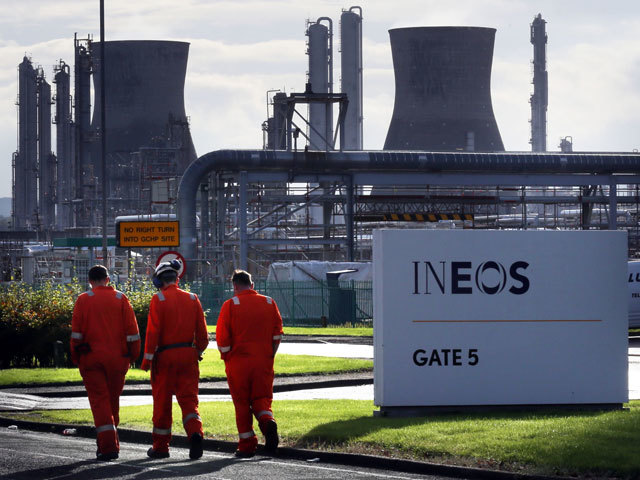
A High Court judge has continued an injunction obtained by energy giant Ineos prohibiting unlawful activities such as trespass or obstruction at its shale gas sites.
Ineos had asked Mr Justice Morgan to extend the existing order, but environmental campaigners said it was both “unprecedented” and “draconian” and had urged the judge to discharge it.
The judge, who heard argument on complex areas of the law from the opposing sides during a hearing in London in October, announced his decision on Thursday.
Campaigners claim the injunction will seriously limit the right of people to protest against the activities of fracking companies and those linked to them.
Lawyers for Ineos said the order was to “prohibit unlawful activities on private and public land”, and not to “injunct lawful activity”.
Ineos Shale is involved in exploratory work such as geological surveys in the East Midlands, but not any hydraulic fracking.
A number of protest groups have been launched to fight fracking, while Greenpeace and Friends of the Earth also campaign against the technique of recovering gas and oil from shale rock.
Mr Justice Morgan made an interim order against “persons unknown” and two named individuals in September, rejecting argument that the potential impact of the injunction on the human rights of those wishing to protest was a “knock-out blow” against it.
He said it was appropriate for the court to intervene and renewed an order, with modifications, which was initially granted in July.
On Thursday he granted the application by Ineos for an injunction to continue.
Environmental campaigner Joe Boyd, who challenged the injunction, argued that it was unlawful as it had a substantial impact on the rights of those wishing to protest against drilling for shale gas across the UK and that Ineos “did not produce the evidence justifying such a broad court order”.
Alan Maclean QC, for Ineos and a number of individuals, told the judge at the hearing in October that it was accepted that shale gas extraction “is a contentious issue, and one on which opinions are divided”.
The merits of shale gas extraction was not a matter for the court to determine, he said.
The application was for “interim pre-emptive injunctive relief in relation to various sites in which the claimants have various property rights, and against unlawful behaviour aimed at disrupting the claimants and associated third parties from carrying out their lawful activities”.
In his ruling, Mr Justice Morgan said: “I have held that there is an imminent and real risk that, in the absence of injunctions, the defendants will interfere with the legal rights of the claimants.”
He added: “Further, in the absence of injunctions, it is unlikely that the claimants will receive any legal redress or compensation for the infringement of their rights.
“Ineos’s business activities are lawful. The defendants wish Ineos to stop carrying on those activities and wish to put pressure on Ineos to stop.
“However, on my findings in this judgment, the defendants’ means of putting pressure on Ineos involve unlawful behaviour on their part, including criminal acts.”
He also held “that it is likely that the court following a trial would grant a permanent injunction to restrain the interferences with the claimants’ legal rights.”
The judge said the matters established by the claimants relating to an imminent and real risk of harm were primarily to do with trespass on land and obstructions of the highway.
He said: “If those matters are restrained, as I hold that they can be, by an order which is clear and precise, I do not consider that the claimants have demonstrated a need for the court to make an order against harassment within the Protection from Harassment Act 1997, where there is no clear definition to what is restrained and what is permitted.”
Ineos Shale welcomed the ruling in a statement.
Operations director Tom Pickering said: “Our people have the right to go to work free from fear of violence and unlawful interference.
“These injunctions simply protect Ineos and our people from hardcore activists who game the system and treat the law with contempt.
“Crucially they also protect the rights of people to lawfully, peacefully protest.”
